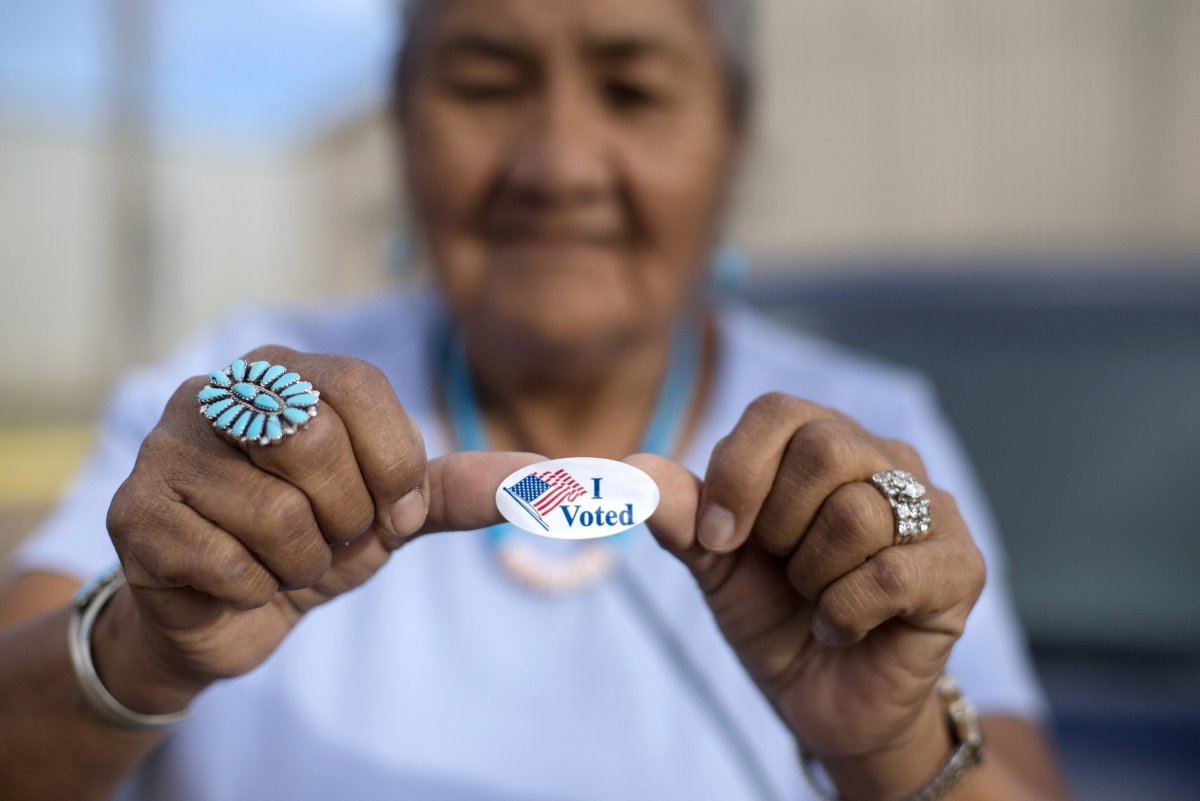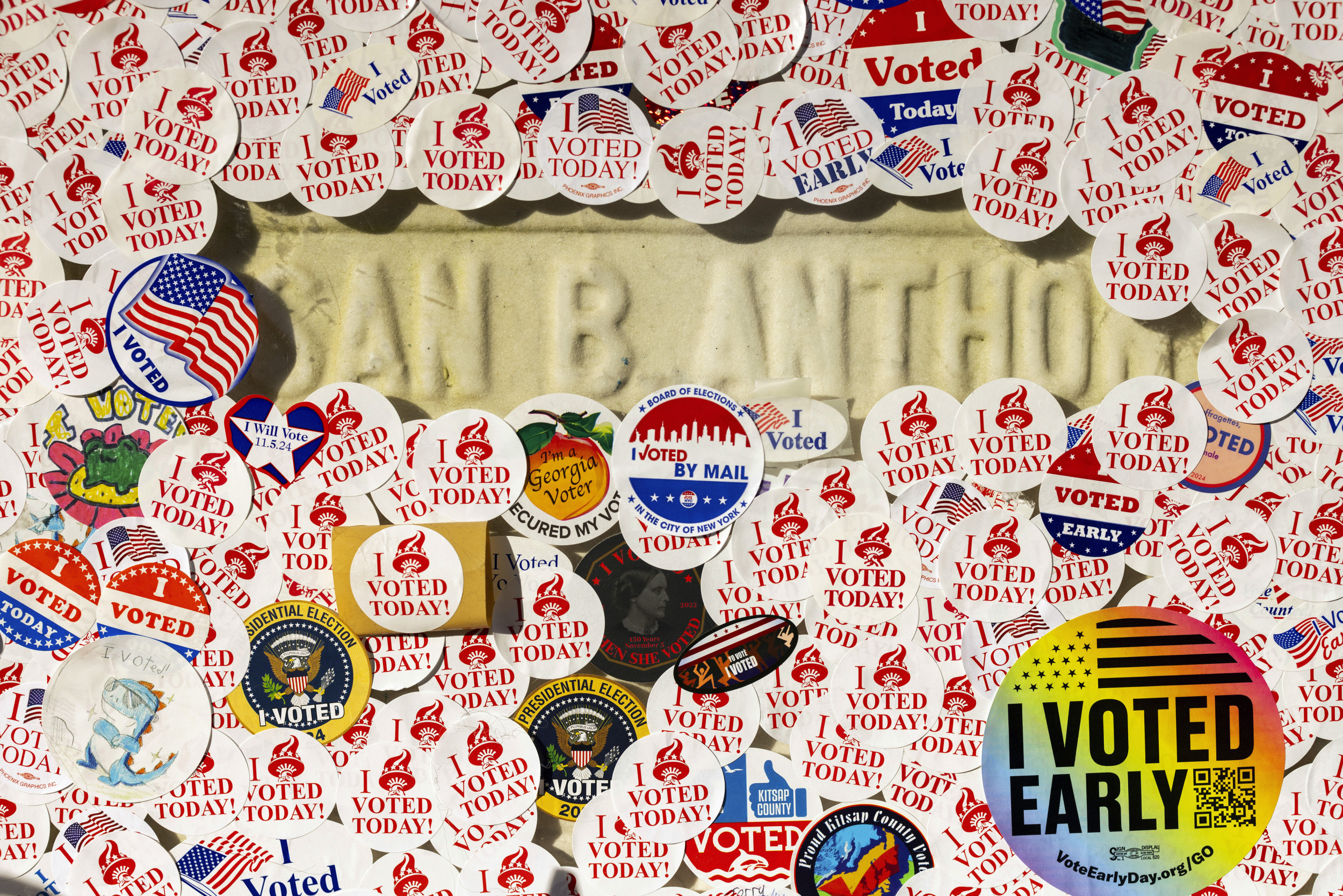As Congress nears a vote on the Safeguarding American Voter Eligibility Act, which could make it harder for married women to register to vote, warnings about the legislation are rising across social media.
On Wednesday, former Secretary of State Hillary Clinton wrote about the SAVE Act on X, formerly Twitter: “Are you a woman who changed your name when you got married? Congress is considering a bill that could make it much harder for you to vote. Call your rep—this is not a drill.”
Democratic Representatives Nancy Pelosi of California and Becca Balint of Vermont also issued warnings on social media about the SAVE Act, telling married women that if their maiden name did not match their married name, it would be significantly harder for them to register to vote.
Newsweek contacted Representative Chip Roy, a Republican from Texas who authored the bill, for comment via email outside working hours.
Why It Matters
The SAVE Act would require anyone registering to vote to provide proof of U.S. citizenship, such as a birth certificate, naturalization certificate or passport. An estimated 146 million Americans do not have a passport, and 69 million married women do not have an ID that matches their birth certificate.
While proponents of the legislation seek to address claims that noncitizens are voting in mass numbers in the U.S., audits have found the number of reported cases of noncitizen voting to be small.
Critics of the bill also argue that measures are already in place across the country to make it almost impossible for noncitizens to vote in federal elections, with penalties of jail time and deportation.
The headstone of Susan B. Anthony covered in “I Voted” stickers at Mount Hope Cemetery in Rochester, New York, on November 5, 2024.
Lauren Petracca/AP Photo
What To Know
Roy originally introduced the SAVE Act in 2024. After it failed to pass the Senate, he reintroduced the bill this year.
President Donald Trump has said the SAVE Act is a key agenda item for the Republican Party, writing on Truth Social in September, “If Republicans don’t get the SAVE Act, and every ounce of it, they should not agree to a Continuing Resolution in any way, shape, or form.”
The legislation has received pushback from Democrats in Congress, with Pelosi writing on X on Wednesday, “The SAVE Act creates wildly unnecessary roadblocks to cast ballots for service members overseas and for nearly 70 million married women—including 7 million Californians.”
The legislation would require those registering to vote to do so in person, which could affect troops deployed overseas.
Roy previously told Newsweek that creating a wider scope for proving identity, such as married women bringing both their birth certificates and their marriage licenses, to register to vote would be left up to the states.
Once again, Republicans are launching outrageous attacks on our elections.
The SAVE Act creates wildly unnecessary roadblocks to cast ballots for service members overseas and for nearly 70 million married women—including 7 million Californians.
Democrats will not stand for it.
— Nancy Pelosi (@SpeakerPelosi) April 9, 2025
The legislation could also affect older Black Americans who may not have a birth certificate because they were denied hospital births.
The SAVE Act would therefore require many Americans to pay for new documents to register to vote, which Genesis Robinson, the executive director of the Equal Ground Action Fund, told Newsweek, “basically amounts to a poll tax.”
The bill also calls for frequent voter roll purges to ensure that noncitizens are not voting. Such purges frequently affect lawfully registered American citizens.
The legislation threatens prison time to poll workers who register someone to vote without following the parameters of the bill.
Jonathan Diaz, the director of voting advocacy and partnerships at Campaign Legal Center, spoke with Newsweek about that aspect of the legislation: “It threatens election workers with prison time if they register a voter who doesn’t have proof of citizenship, even if the voter is an eligible U.S. citizen.
“It subjects election workers to criminal prosecution and allows any private individual to sue an election official for even a single instance, even a mistake of registering somebody who doesn’t have the necessary paperwork. So it would be a huge headache and a real threat to election workers, in addition to the burdens it puts on voters.”
Roy has said the bill was written because “millions of illegal aliens remain in our country illegally and many have been given the opportunity to register to vote in federal elections.”
An audit conducted by Georgia Secretary of State Brad Raffensperger in 2024 found 20 noncitizens, 0.00024 percent of Georgia’s 8.2 million registered voters, on the voter rolls. All 20 individuals were referred to law enforcement.
In 2022, Arizona tried to implement similar barriers to voting but had its laws struck down by courts citing civil rights violations.

Mildred James of Sanders, Arizona, showing her “I Voted” sticker as she waited for results of the Navajo Nation presidential primary election in Window Rock, Arizona, on August 28, 2018.
Cayla Nimmo, File/AP Photo
What People Are Saying
Elena Langworthy, the director of policy at State Voices, told Newsweek: “The SAVE Act and the president’s recent executive order represent an attack on voters that would disenfranchise millions of voters by restricting who has a voice in our elections based on logistical hurdles. They would also restrict nonprofit and civic organizations from supporting voter registration, meaning we risk a vicious cycle in which communities across the country are completely ignored. We should be making it easier for voters to have their voices heard, not silencing the votes and voices of communities across the country.”
Representative Chip Roy told Newsweek in February: “This is absurd armchair speculation being spun up by media outlets who care more about clicks than reality … This bill isn’t being attacked because it’ll exclude citizens from voting—it won’t. It’s being attacked because the policy is wildly popular with the American people, its opponents want and need illegals to vote, and they’ll use anything they can to attack it.”
Jonathan Diaz, the director of voting advocacy and partnerships at Campaign Legal Center, previously told Newsweek: “The top line is that the SAVE Act would create really significant new burdens on Americans to register to vote. It would make it harder for most eligible American citizens to register and cast a ballot.
“It would completely upend mail and online voter registration systems … especially in smaller and more rural counties. They don’t have the money and the resources to do this without appropriations from Congress, which the bill doesn’t provide for.”
What Happens Next
Congress is expected to vote on the SAVE Act by the end of the week. If it passes, it will be sent to the Republican-controlled Senate.





